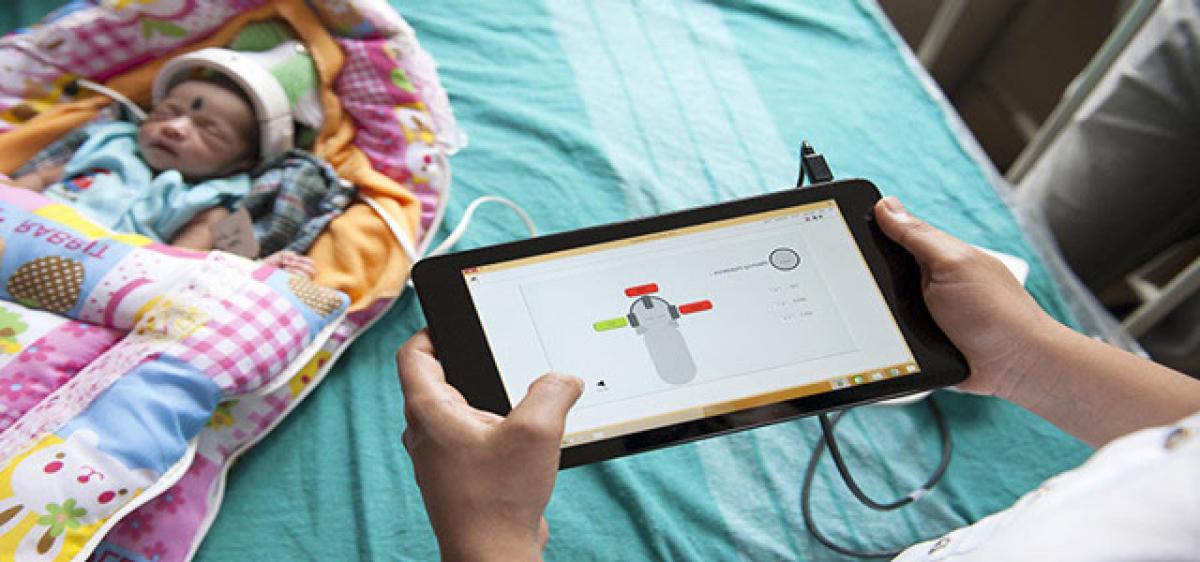What is Sohum?

The indigenously developed newborn hearing screening device SOHUM was formally launched by the Minister of State for Science and Technology & Earth Sciences, YS Chowdary, in New Delhi on Tuesday. The newborn hearing screening device developed by School of International Biodesign (SIB) startup M/s Sohum Innovation Labs India Pvt Ltd.
The indigenously developed newborn hearing screening device SOHUM was formally launched by the Minister of State for Science and Technology & Earth Sciences, YS Chowdary, in New Delhi on Tuesday. The newborn hearing screening device developed by School of International Biodesign (SIB) startup M/s Sohum Innovation Labs India Pvt Ltd.
This innovative medical device has been developed under Department of Biotechnology (DBT), Ministry of Science and Technology, Government of India supported (SIB). SIB aims to develop innovative and affordable medical devices as per unmet clinical needs of India and to train the next generation of medical technology innovators in India.
Sohum is a low-cost and unique device which uses brainstem auditory evoked response, the gold standard in auditory testing to check for hearing response in a newborn. As of now, this technology is prohibitively expensive and inaccessible to many. Start-up Sohum has made the technology appropriate for the resource constrained settings and aims to cater to nearly 26 million babies born every year in India.
One of the most common birth disorders congenital hearing loss is a result of both genetic and non-genetic factors. These factors are mostly associated with resource-poor economies such as India where, unlike advanced healthcare systems, hearing impairment goes undiagnosed. Thus, when it is discovered at 4+ years, it’s too late to reverse the damage and this leads to a host of problems such as impaired communication skills and even possible mental illness.
Globally, 8,00,000 hearing impaired babies are born annually of which, nearly 1,00,000 are in India.The portable Sohum Hearing Screening measures auditory brain waves via three electrodes placed on the baby’s head. When stimulated, they detect electrical responses generated by the brain’s auditory system. If there is no response, the child cannot hear.
The battery-operated device is non-invasive, which means babies do not need to be sedated, which is the current, and risky, testing in process at present. Another key advantages over other testing systems is the patented, in-built algorithm that filters out ambient noise from the test signal.
This is important because health clinics can be incredibly crowded and noisy. The government aims to screen two percent of hospital-born babies in the first year, before scaling up. The project has ambitious plans to help every baby born in India be screened.














